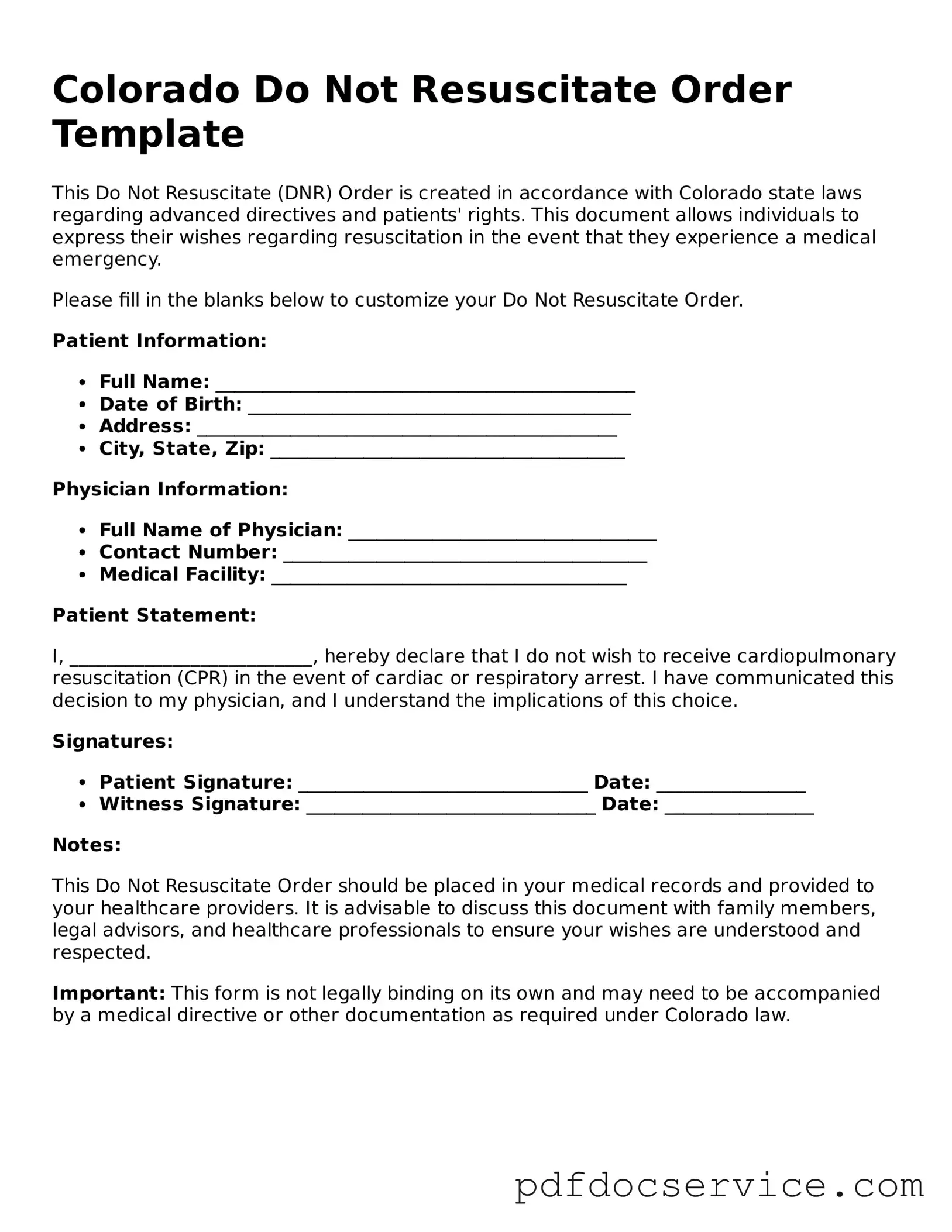A Colorado Do Not Resuscitate Order (DNR) form is a legal document that allows an individual to express their wishes regarding resuscitation efforts in the event of a medical emergency. This form is particularly important for individuals with serious health conditions who wish to avoid aggressive life-saving measures, such as CPR, in certain situations.
In Colorado, any competent adult can complete a DNR form. This includes individuals who are 18 years or older and are able to make informed decisions about their medical care. Additionally, a parent or legal guardian can complete a DNR form for a minor.
You can obtain a Colorado DNR form from various sources, including:
-
Your healthcare provider or hospital
-
Colorado's Department of Public Health and Environment website
-
Local health organizations and advocacy groups
Ensure that you use the official form to avoid any complications regarding its validity.
The DNR form typically requires the following information:
-
Your full name and date of birth
-
Your address
-
Your healthcare provider’s information
-
Your signature and the date
-
Signature of a witness or notary, if required
Make sure to fill out all required sections accurately to ensure your wishes are respected.
Yes, a properly completed and signed DNR form is valid across various healthcare settings in Colorado, including hospitals, nursing homes, and emergency medical services. However, it is essential to communicate your wishes to your healthcare team and ensure that they have a copy of the DNR form on file.
Absolutely. You can revoke or modify your DNR order at any time. To do so, simply destroy the existing form and notify your healthcare provider of your new wishes. It’s a good idea to provide them with an updated document reflecting your current decisions.
Once you have completed your DNR form, make several copies. Keep one copy in a place that is easily accessible, such as your medical records or with your advance directives. Share copies with your healthcare provider, family members, and anyone else involved in your care to ensure that your wishes are known and respected.
Generally, there are no fees associated with obtaining or completing a DNR form in Colorado. However, if you seek legal assistance or consult with a healthcare professional for guidance, there may be costs involved. Always check with your provider or legal advisor for any potential fees.
If you do not have a DNR form in place, healthcare providers are required to perform resuscitation efforts, such as CPR, if your heart stops or you stop breathing. This may not align with your wishes, especially if you prefer to avoid such interventions. It’s crucial to communicate your preferences to your family and healthcare team to ensure they understand your desires.
Can family members override a DNR order?
In Colorado, once a DNR order is valid and in effect, family members cannot override it. However, it is essential for family members to be aware of your wishes and the existence of the DNR order. Open discussions about your preferences can help avoid confusion and ensure that your decisions are respected during medical emergencies.

